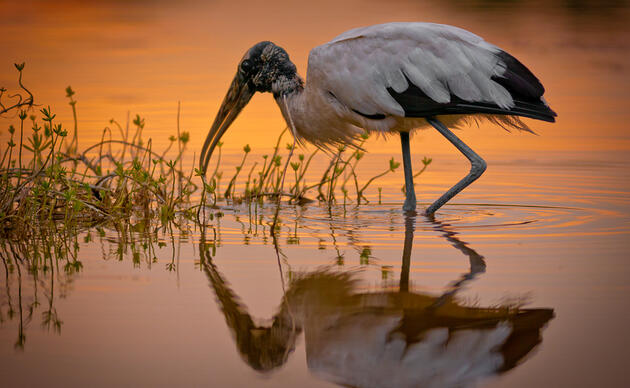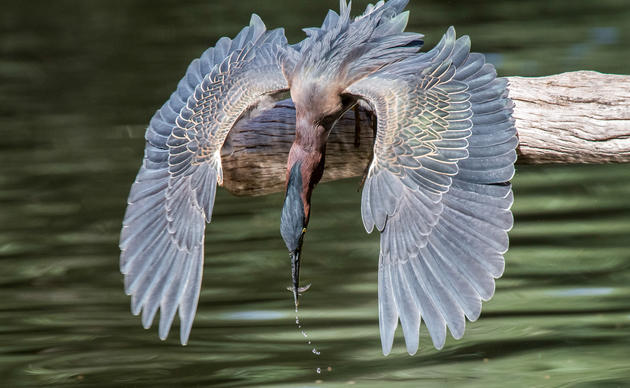Rapidly reducing energy sector emissions is a critical step toward mitigating adverse climate-change related impacts to birds, which range from habitat loss to air and water pollution. Fortunately, clean energy technologies are not only increasingly cost effective and abundant, but they are also relatively insulated from the price volatility and geopolitical dynamics associated with fossil fuels. On Wednesday, May 3, Audubon South Carolina (ASC) joined representatives from SC-based corporations, utilities, and other non-profits at the Sustain SC Energy Forum to discuss South Carolina’s energy landscape and explore opportunities to expand use of, and access to, clean, reliable and affordable energy across the state.
ASC Executive Director Rebecca Haynes moderated a panel discussion on clean energy technologies and the opportunities and challenges associated with deploying them in the state. The panel discussed a variety of technologies ranging from those proven and available today such as solar, battery storage, and even energy efficiency—to those that are still emerging in South Carolina, such as wind and hydrogen energy. The other panels also discussed challenges and opportunities with a transition to clean energy from utility, business and environmental interests; and the panels also highlighted the critical importance of access to renewable energy to large companies, such as Milliken & Co and Sonoco, when making decisions on where to locate and invest.
State Senate President Tom Alexander, Speaker of the House Murrell Smith, and Chief Resilience Officer Ben Duncan also offered comments in between the panel discussions. They all reiterated the need to protect what makes South Carolina special and a desirable place to live, including our natural resources and economy, and how clean, reliable energy is a key part of ensuring that now and in the future.
While there were differing opinions among participants about the path forward, there was a clear consensus about the importance of renewables to South Carolina’s future and economy, and the need for significant policy changes in order for South Carolina to make this goal a reality.
Among the policy opportunities currently under consideration by State lawmakers, there are three we are keeping a closer eye on: 1) a joint House and Senate legislative committee on electricity market reform, 2) an ad hoc committee on economic development and grid modernization, and 3) Senate bill 779, the “Energy Independence and Risk Reduction Act.”
1)In 2019, a joint legislative committee was created by H.4940 to study the potential benefits of electricity market reform. Last week, the committee finally released the study report and recommendations, which, if enacted, would result in a more efficient, resilient, and reliable electric grid; greater access to clean energy technologies; and overall reduction in costs and emissions. The joint committee will meet over the summer and fall to develop their legislative proposal.
2)Last fall, Speaker Smith convened the ad hoc Economic Development and Utility Modernization Committee. The committee is planning to release a legislative proposal next year, which we expect will include a variety of state policies that collectively will support more clean energy and invest in our state’s ability to remain competitive economically.
3)Last week, Senator Talley filed S.779, the “Energy Independence and Risk Reduction Act,” which also includes a variety of state policies that collectively facilitates the transition to clean energy while reducing costs and ensuring reliability.
ASC is part of a coalition of conservation groups working together to ensure that conservation outcomes remain a priority for whatever legislation ultimately passes the General Assembly to achieve clean, affordable, and reliable energy. ASC also recognizes that responsibly siting energy infrastructure will be paramount to ensuring we protect the places birds need now and in the future. This is why we are facilitating stakeholder conversations around clean energy siting and working to promote existing tools, such as South Carolina’s solar habitat guidelines, to minimize impacts to birds and their habitats where clean energy is deployed. If you are not already receiving our emails, click here to stay up to date with advocacy opportunities and be a voice for birds.



